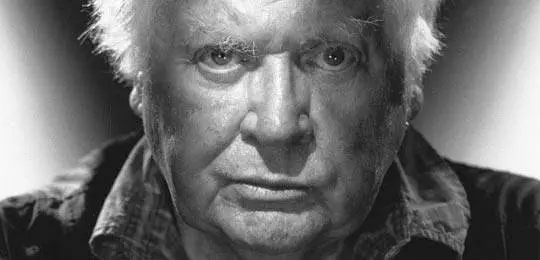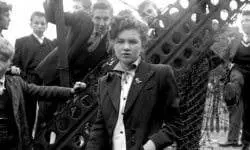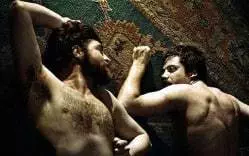 Jamie McHale immersed himself in the late, great British director Ken Russell at the National Media Museum’s Saturday Day School. Read about his day here.
Jamie McHale immersed himself in the late, great British director Ken Russell at the National Media Museum’s Saturday Day School. Read about his day here.
In any cinéphile’s mind there are those few directors whose oeuvres you really should know better, but just haven’t got round to checking out… But will do soon… Promise. Ken Russell was one such director for me.
The British director tragically died late last year and with Bradford’s National Media Museum putting on a Ken Russell educational immersion day it seemed like the perfect opportunity to fill that gap in my cinematic knowledge.
Billed “Ken Russell: Enfant Terrible of British Cinema” and starting with a lecture taking us through Russell’s early stint in photography through to TV work and ultimately his move into cinema, the morning provided a comprehensive look at the life and work of the much debated director. In the afternoon we were treated/subjected (depending on your standpoint) to a feature screening and discussion of his 1969 adaptation of D.H.Lawrence’s Women in Love.
So what did I learn?
 Before we got to his film work we took a brief look at Russell’s early life and I think it’s safe to say the whole group was pretty stunned that the somewhat portly figure started out as a ballet dancer. After a brief stint on stage Russell moved into photography showing an unquestionable flair for composition as shown in his Teddy Girl (image right).
Before we got to his film work we took a brief look at Russell’s early life and I think it’s safe to say the whole group was pretty stunned that the somewhat portly figure started out as a ballet dancer. After a brief stint on stage Russell moved into photography showing an unquestionable flair for composition as shown in his Teddy Girl (image right).
You can see more of Russell’s photographic work here.
However, before long, stills weren’t enough for Russell and he moved into the moving image. Joining BBC arts programme Monitor in the early 60s with two of his masterworks of these days being recently broadcast on TV: 100 Elgar (1962) & Song of Summer (1968). We watched a clip of Elgar and saw an early showcase of soundtrack, landscape and a technique he is largely regarded as an expert in, the long shot.
After his TV work we moved on to perhaps Russell’s most controversial work, being heavily cut in both the UK & USA The Devils (1971). Without giving too much away, the film focuses on an outspoken priest, a group of sexually repressed nuns and a scene entitled “Rape of Christ.”
 The next films we looked at were Mahler (1974) & Tommy (1975) which were both box office hits and the latter is credited by some as having invented the pop music video. You only need to watch this clip to see why. After this we moved on to Women in Love (1969) & The Rainbow (1988) followed by the screening of Women in Love (Pictured left).
The next films we looked at were Mahler (1974) & Tommy (1975) which were both box office hits and the latter is credited by some as having invented the pop music video. You only need to watch this clip to see why. After this we moved on to Women in Love (1969) & The Rainbow (1988) followed by the screening of Women in Love (Pictured left).
After the feature we returned to our group to discuss our thoughts and almost unanimously agreed on our dislike of the film. Without going into much detail, it transpired that our feelings were more directed to D.H. Lawrence, the author of the novel on which the film is based, than it was to Russell.
At £19.50 (£16 for concessions) the ticket price can seem a little steep on first glance, but when you consider it buys you a full day with an expert and a screening as well as the opportunity to discuss and dissect with fellow cinéphiles it really isn’t bad value at all. Visit the National Media Museum’s website at http://www.nationalmediamuseum.org.uk for details of upcoming education programmes.
Have an appetite for Ken Russell? His Altered States will be playing as part of the Hyde Park Picture House’s Creatures of the Night series at 11pm on Saturday 10th March.
Jamie McHale is a Leeds based film lover and editor of pop culture blog TQS, you can find him on Twitter @jamie_mchale.
Mike McKenny is The Culture Vulture’s film editor. If you have any film related stories, articles, reviews with a twist, etc, contact him on [email protected] or find him on Twitter @DestroyApathy